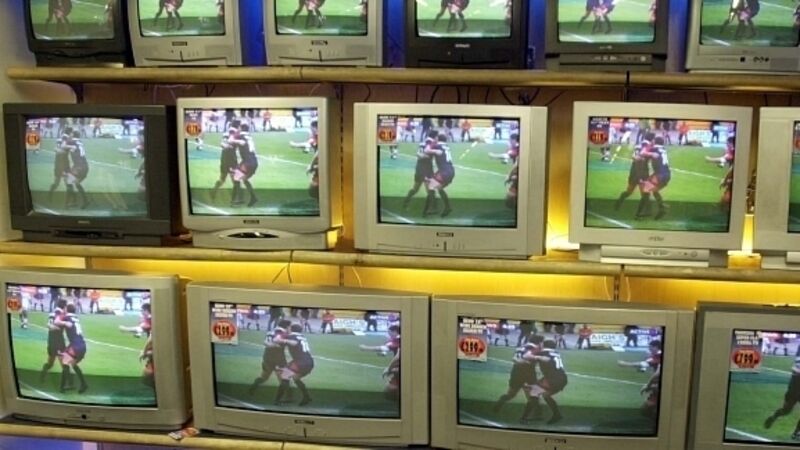Opening Lines: Definition Issue

The phrase ‘actually, we don’t have a TV’ is laden with meaning, as if accompanied by ‘we prefer to think and read and revive the dying art of conversation.’
We don’t. We just watch First Dates or One Born Every Minute on a laptop or a tablet. Our viewing has actually worsened over the years. When I watch a match now, the screen size is analogous to one you’d see in a FIFA ad for the global power of football in which an entire street is gathered around Uncle Joao’s black-and-white telly, which is placed on a rickety chair in a Brazilian favela. Five years out of the television loop means a number of things. When we visit people, we just want to look at their telly, regardless of what’s on. We stare at the set, entranced by its form and size, as if it were a Carravaggio, even though we’re watching Celebrity Come Dine With Me. Also, if we were to get a telly, I’m not sure where it would go. Since television first arrived, Irish living rooms have been designed around them; which is only right. The telly is the most important object in the room. Have you ever watched Murder She Wrote on a corner cabinet that contained Tipperary Crystal and a graduation photo?















